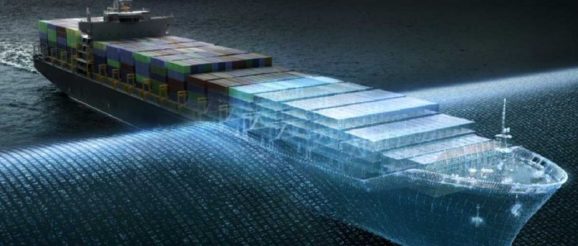The Future of the Maritime Logistics Industry: Unmanned Ships From 2020 | CPO INNOVATION

There are no drones only across the skies but also on land and sea and Rolls Royce has focused on the latter for its commercial strategy as far as vessels are concerned.
The company, which no longer manufactures cars -transferred the automobile division to BMW- is a conglomerate that operates in the aeronautical, aerospace, maritime and energy sectors. They have a clear-cut commitment to the seas: launch unmanned ships by mid-2020.
In the meantime, the Rolls-Royce Blue Ocean research team has already launched a virtual reality prototype in its office in Alesund, Norway, which simulates the views from a ship’s command bridge in 360 degrees. The manufacturer hopes that ship captains can maneuver hundreds of unmanned ships from the ground, without any need to approach the sea.
The idea is that during this year the first fleet of unmanned ships will be built. The first would be tugboats or ferries, boats that make simple, short-sized journeys in controlled environments. At first, all risks must be minimized, in order to avoid any possibility of unforeseen events.
The next stage would be the launch of cargo ships, with increasing complexity, especially because they sail in international waters. As of today, there is no legislation that covers unmanned commercial shipping. And the approval of international regulation is always slower than that processed by individual countries.
Unmanned ships, according to Rolls Royce, will reduce operating costs by 20%. Companies, therefore, buy ships to increase their profit margins. The other side of technology is the possible loss of jobs. It will not be necessary to have a crew either a large contingent of security personnel. However, piracy will surely remain a threat that requires the presence of minimal security personnel while keeping in mind that there will not be as many lives at stake in the absence of crew members as the risk for cargo theft.
Although, Rolls-Royce pointed out that new jobs will be created. The operations will have to be performed from the ground. It is an unmanned craft, not autonomous. Cybersecurity will be a key element assuring secured communications links between the ship and land, hence new profiles will be necessary.
By replacing the control bridge along with the other systems where the crew is usually accommodated – including electricity, air conditioning, water, and waste treatment system- the ships will withstand more cargo, reducing costs and increasing revenue. In addition to this, according to the initial calculations, these ships will be 5% lighter and consume between 12 to 15% less fuel ensuring a greener performance. Similarly, electric fuel-free ships are being researched in order to consider their implementation.
